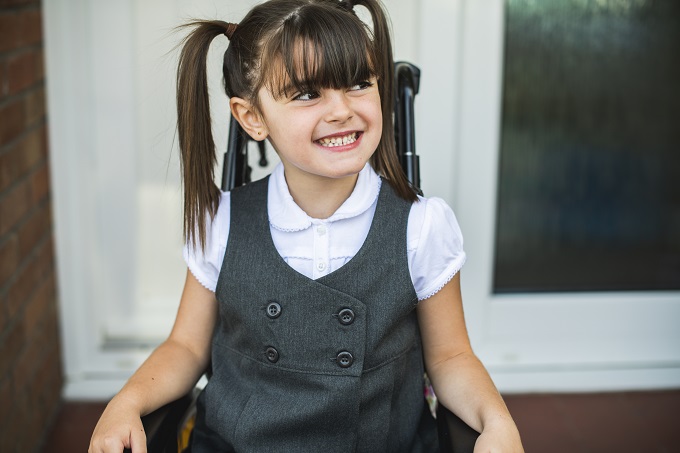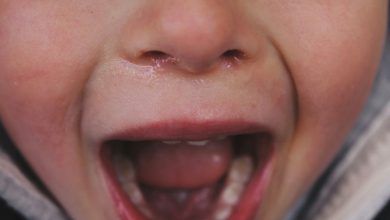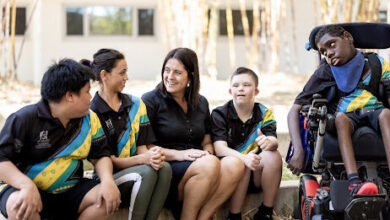Students with learning needs to benefit from $29.6m Action Plan

The Human Rights Commission has praised the government’s new strategy to improve the support for children and young people with learning needs.
Tracey Martin, Associate Minister of Education, said: “New Zealanders want a fair education system that meets the needs of all students, so they can develop their full potential and engage fully in society.”
“One in five children, around 200,000, need some kind of extra support for their learning. This is part of the natural variability among children and young people in every learning environment.
“Feedback from across the education and disability sectors, as well as from parents and whānau and students themselves, has been very clear that we need to do a better job of helping these young people and meeting their diverse needs.”
Disability Rights Commissioner Paula Tesoriero said: “The action plan identifies that the education system has failed disabled learners for decades.”
“We look forward to the Government investing in addressing the range of significant systemic issues, also noted in the action plan, that have led to the education system not being inclusive, for example, workforce capacity and confidence, lack of services, a serious lack of data about educational outcomes and the low aspirations of others.”
The June 2018 quarter Household Labour Force Survey (HLFS) showed 43% of disabled school-leavers are not transitioned into training, jobs or other education. Complaints to the Human Rights Commission about discrimination facing disabled students have included:
• schools not wanting to enrol children at all or only for limited hours
• children that have been stood down, suspended, excluded or expelled from school either because of their disability or due to behaviour that is related to their disability
• disabled children’s ability to participate fully in wider school activities, such as school camps and other school trips
• schools not making the reasonable accommodations required by a disabled student
• disabled children being bullied at school
Minister Martin said the Government was improving the system of support for students and increasing its funding – with the Budget including an extra $29.6m to respond to growth in demand.
The Learning Support Action Plan 2019-25 is focussed on six strategic priorities that will make the greatest difference over the next few years:
- introducing the first tranche of Learning Support Coordinators in schools and kura
- developing new screening tools to help the early identification of learning support needs
- strengthening early intervention for pre-schoolers
- creating a flexible set of services and supports for neurodiverse children and young people
- better meeting the learning needs of gifted children and young people
- improving education for children and young people at risk of disengaging.
The Action Plan reflects the findings of the Select Committee Inquiry to improve identification and support for children and young people with dyslexia, dyspraxia, and autism spectrum disorders. It also reflects the feedback and submissions received as part of the Kōrero Mātauranga Education Conversation, and from consultation on the draft Disability and Learning Support Action Plan. It builds on the new approach to providing learning support that is being implemented following significant consultation.
“This Government is strongly committed to improving learning support for New Zealand children and young people, and their parents and whānau,” Mrs Martin says.
“Our first two Budgets combined have provided new funding for learning support of $619.7 million.
“Budget 2018 increased funding for learning support by $283.8 million over four years. Budget 2019 provides further increases for learning support of $335.8 million over four years. This includes additional funding of $29.6 million to respond to population and demand growth, as well as funding for the new Learning Support Coordinators who will start work from January 2020 and who will play a key role in providing more help for students, their families and teachers.
“This additional funding is about ensuring we can provide the learning support that our children need. The Action Plan is about changing the way we deliver that support. It addresses the challenges we have seen for our students over the last decade in accessing that support in a timely fashion.”
The Minister said that the Action Plan will continue to be reviewed and revised, so it delivers the best possible outcomes for children and young people with learning support needs and that the
“Better outcomes for all children and young people, particularly those who are disabled or have learning support needs, are an important part of the Government’s wider work programme. As this wider work continues over time, I am confident we will see progress towards an education system with a range of learning environments where disabled children and those with learning support needs are welcome and where their achievement, progress, wellbeing and participation is valued and supported.”
Read the Learning Support Action Plan here.
“Around 3500 students are deaf or hard-of-hearing,” the Minister says. “They mostly attend their local school, and many are the only deaf or hard-of-hearing child in the school.
“If we want these students to have the education opportunities they deserve, we need high quality supports and services in place and that’s what the Government is investing in.”
Increased funding of $9.9 million over the next four years will provide:
- New Zealand Sign Language at school (NZSL@School) support for an additional 25 students
- study awards to support 24 more teachers to complete specialist training as Resource Teachers of the Deaf
- additional Advisors on Deaf Children, who will provide intensive support to young and very young deaf children and their whānau
- three new immersion hubs, where deaf children enrolled in their local school can meet regularly with other deaf children and young people, and develop their NZSL capability, and
- support for up to 20 babies and young children with cochlear implants each year, so they get the greatest benefit from their implant.
“As with other learning support, the extra services and supports are expected to deliver both educational and life-long benefits for these students and their families,” Mrs Martin says. “These include stronger communication skills and relationships; improved wellbeing and health outcomes; and improved participation in education, the workforce and the community.
“Deaf and hard-of-hearing children, as well as those with a wider range of learning support needs, will also benefit from a $3.9 million increase in funding for assistive technology.
“Modern specialist technology, such as specialised computers, classroom hearing or vision equipment, can be extremely helpful in supporting children and young people to hear, see, and study.”









